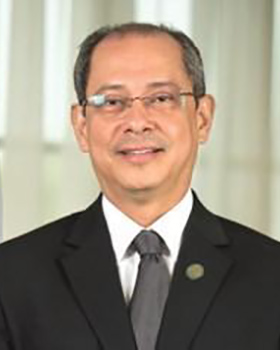UMECIT
Research Bioethics Committee
The UMECIT has created this committee in order to ensure the application of ethical standards in research in accordance with the dignity of human beings.

History
Since the year 2015
The Metropolitan University of Education, Science and Technology, has a bioethics regulation, based on the documentation related to research management, through which substantive elements were outlined to be taken into account in those investigations where relevant bioethical aspects were present. .
Taking into account the demands and changes at the national and international level in the field of bioethics
of the research, the Research and Postgraduate Department, in joint work with the Coordination of the Faculty of Health Sciences, in August 2018 began direct contact with the National Secretariat of Science and Technology, specifically with the National Bioethics Committee of Research, to request support and training, in order to carry out the processes contemplated in the bioethics regulations, with all the rigor that is required.
The training received and the review of processes, procedures, forms and other material
to serve as a reference to formally structure the institutional bioethics committee, required reviewing and updating research documents and processes, taking as models those provided by the National Research Bioethics Committee, based at Senacyt.
In addition, we proceeded to form and train
to the different members that make up the UMECIT bioethics committee, under multidisciplinary and diversity criteria.
All suggestions received were followed, in addition to part of the Bioethics Committee.
of the University of Panama, not only in relation to research in the health area but also in the humanistic area, which have been incorporated into the entire documentary platform that supports the management of the committee.
UMECIT has been prepared responsibly and with a high sense of social relevance
for the development of institutional processes, which allow guaranteeing the execution of research projects, where aspects of bioethics are present, are consistent with the fundamental rights of man and respect for their integrity.
Aim
The objective of the UMECIT Research Bioethics Committee is to ensure the application of ethical standards in research in accordance with the dignity of human beings, as provided in national and international codes. In addition, it includes among its functions to identify and evaluate the risks and benefits of the research, as well as the process and materials that will be used to obtain the informed consent of those who participate in the operational phases of protocols or research reports and evaluate the scientific validity of the research. study design and the suitability of the research team, under the faithful compliance of an institutional criterion of a socially responsible university.
Additionally, it ensures the ethical and legal review of all research products that arise from the various academic spaces of the university. The Research Bioethics Committee acts as the body that contributes, together with the Institutional Research Committee, the policies of the research exercise in the spaces of the UMECIT, with the following objectives:
- Ensure that the research benefits not only the people involved but also society as a whole, in accordance with an integral epistemological concept articulated to the cyber-humanist curricular educational model of the university.
- Contribute to safeguarding the dignity, rights, safety and well-being of participants in biomedical research, including special attention to studies involving vulnerable subjects (children, adolescents, older adults, indigenous people, among others).
- Provide an independent, competent and timely evaluation of the ethics of the proposed studies.
Vision
The general functions of the Research Bioethics Committee of the Metropolitan University of Education, Science and Technology (UMECIT) are derived from ethical principles, as well as ensuring the proper actions of researchers, based on respect for the aspects implicit bioethics in investigative praxis. Additionally, it seeks to guarantee the development of research and its protocols adjusted to the contributions of bioethics, in order to protect the interests of the participants that are part of it, encourage the dissemination and dissemination of bioethics in all fields of knowledge, promote and promote permanent actions, crystallized in training and support activities, on issues related to ethics in various disciplines, plagiarism and ethics in research.
The Research Bioethics Committee of the Metropolitan University of Education, Science and Technology (UMECIT) has the main functions of approving, deferring, auditing, suspending and canceling all biomedical research that involves the participation of human beings, guaranteeing that all research in which they participate, is carried out within the framework of respect for their dignity, integrity and identity.
The Research Bioethics Committee of the Metropolitan University of Education, Science and Technology (UMECIT) has advisory, educational and regulatory tasks, which are detailed:
1. Advisory Tasks:
1.1. Evaluate the ethical and scientific aspects of the research protocols carried out at the Institution, as long as they are requested through the Research and Postgraduate Department, specifically through the Research Committee.
1.2. Ensure that the rights, physical and moral integrity and confidentiality of the people participating in clinical research activities are always protected and respected based on human rights and individual guarantees.
1.3. Evaluate that within the clinical research projects the people participating in the research activities are not exposed to unnecessary treatments according to the objectives of the study.
1.4. Evaluate the competence of the research team and monitor the use of adequate instruments and trained personnel to carry out each of the techniques proposed in the studies.
1.5. Verify that the informed consent document complies with the requirements established in the Good Clinical Practices (GCP) established in the International Conference on Harmonization (ICH) and in the current national laws on the matter.
1.6. Request the principal investigator and/or study proponent, the modifications related to the consent process and the informed consent document.
1.7. Verify that the damages caused to the subjects involved in a clinical study are equitably compensated, in the cases that so require.
2. Educational Tasks:
2.1. Maintain the academic level and promote permanent training activities for the commissioners of the Committee, in relation to ethics and the science of biomedical research and project their knowledge.
2.2. Support any institution, public or private, national or international, interested in the dissemination of bioethics in research and medical ethics.
23. Promote teaching.
3. Regulatory Tasks:
3.1. Approve, postpone, reject or suspend clinical research protocols submitted for evaluation.
3.2. Evaluate that the informed consent process (how, where, who, to whom, time, opportunity) and that the informed consent document meets the requirements according to the International Conference on Harmonization (ICH), Federal Administration US Food and Drug Administration (FDA), European Medicines Agency (EMEA).
3.3. Evaluate changes, deviations, violations of the protocol and the general conduct of the investigation.
3.4. Collaborate with other national and international institutions in the elaboration of norms and regulations related to the establishment of other Bioethics Committees at the national level.
3.5. Suspend, for reasons of proven urgency, or cancel at any time, the approval or performance of a research project, when it is verified that there is a danger to the health or well-being of the participating subjects.
3.6. Check the suitability and capacity of the principal investigator.
3.7. Establish a database with the information pertinent to the clinical studies submitted for consideration.
3.8. Keep detailed minutes of all your meetings and keep a file of each protocol submitted to your consideration.
3.9. Maintain an active file of the studies submitted for its consideration, in order to carry out a longitudinal evaluation of the development of the investigations until their completion and results.
3.10. Ensure strict compliance with the Good Clinical Practice (GCP) standards during investigations.
3.11. Follow up and monitor the execution of research projects, requesting periodic reports from the researcher and knowing the report on completion of the investigations.
3.12. Know and evaluate all adverse events and the most relevant situations that occur during the development of a clinical study.
3.13. Know the complaints of patients or individuals about anomalous situations related to a clinical study.
3.14. Safeguard the files of the projects submitted for evaluation, as well as all the documentation that supports their activities, for at least four (4) years after the completion of a study.
3.15. Maintain strict confidentiality within the framework of the provisions regarding professional secrecy, regarding meetings, documents, requests, research projects and matters related to the Bioethics Committee of the Metropolitan University of Education, Science and Technology (UMECIT).
3.16. Conduct regular and "for cause" audits of the Principal Investigator.
3.17. Request the opinion of an external consultant or specialist on the issues of the protocols under evaluation, if the case requires it.
3.18. Invite the researcher or his collaborators to respond to concerns or make clarifications related to the protocol submitted for evaluation by the Committee.
Documents to be delivered and response time
Courses of Good Clinical Practices
They must enter the address (https://globalhealthtrainingcentre.tghn.org/) and take courses:
Introduction to clinical research.
ICH Good Clinical Practice E6 (R2).
Investigator Form
- F-113 GUIDE FOR THE FORMULATION OF INFORMED CONSENT
- F-217 Clinical Study Follow-up Report
- F-218 Curricular Information for CBIU Members.
- F-224 International Security Information Report
- F-228 Application for Clinical Research Protocol Approval
- F-234 Initial Checklist for Protocol Review
- F-239 Notification of Deviations or Protocol Violations
- F-240 Study Payment Template
- F-241 International Serious Adverse Event Report
- F-243 Record of Complaints
- F-244 Report of Serious Adverse Event
- F-245 Safety Information Report
- F-260 Request for Reconsideration of Decision
- F-261 Application for Exemption
- F-263 Declaration of Bioethical Commitments by the Researcher
Processes
- P-GI-P 10 Preparation, Review and Implementation of Standard Operating Procedures
- P-GIP-04 Procedure for the Presentation of Protocols before the Research Bioethics Committee
- P-GIP-07 Response Time
- P-GIP-15 Response Types
- P-GIP-23 Pr. Request for Exemption from Bioethics Review
- P-GIP-24 Pr. Reconsideration of Decision Issued by the Bioethics Committee
Consultation Documents
Drafting informed consent
Members

Lourdes Iribarren President

Ogami Rivera CanoVice president

Ephraim Callender Technical secretary

Pbro. William A. RodriguezCommissioners

Michael U. ValdesCommissioners

Javier TerrientesCommissioners

Leah J WalkerCommissioners

Ramiro CamposCommissioners
Activity and Location
Location
Panama Headquarters Building A Fundadores, Transístmica, Vía Simón Bolívar
Phone:
(+507) 264-9908
E-mail:
comitedebioetica@umecit.edu.pa
Hours of operation:
Monday to Friday: 9:00 a.m. to 12:00 p.m. / 2:00 p.m. to 5:00 p.m.
